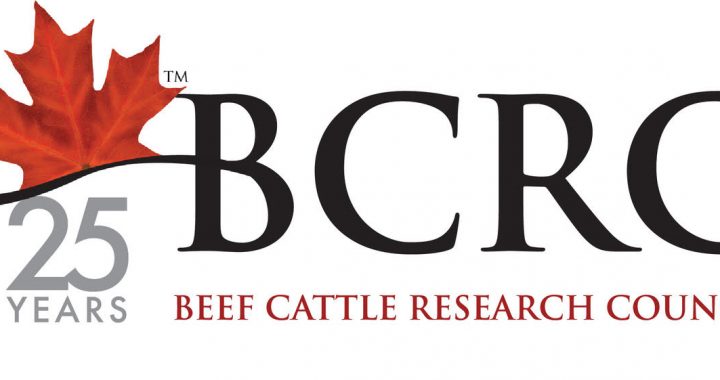It all began with an explosive growth in production and exports in the Nineties, thanks in part to agreements like NAFTA, followed by a contraction in ag research funding through entities like Agriculture and Agri-Food Canada. But the growth period highlighted the need for targeted research to meet industry needs on topics as broad as forage, animal health and welfare and, more recently, sustainability and climate. Suddenly, it was clear that ag research was not adequately funded. The Beef Cattle Research Council (BCRC) was born out of that need.
“In 2004 when I started, we funded a handful of research projects, and received 5c of the one dollar national checkoff,” admits Andrea Brocklebank, Executive Director at the BCRC.
(Editor’s note: Back then, the BCRC worked closely with the Alberta Ingenuity Centre for Bovine Genomics, Gentec’s predecessor, and Dr. Reynold Bergen, BCRC’s Science Director, sat on Gentec’s Management Advisory Board. Also, Gentec CEO Graham Plastow remembers how meeting staff at BCRC and understanding their vision helped set the agenda for Gentec in terms of open collaboration. He says they have been a fantastic partner for Gentec’s beef research, and recommends subscribing to their blogs and webinars to keep up-to-date. They really do a fantastic job in bringing research to producers for application.)
Over the years, the BCRC focused on increasing investment and demonstrating value. That means extension and production-based research that leads directly back to benefits on the farm. BCRC’s portfolio also had to broaden because, from the consumer perspective, things changed. There was a new expectation to provide sound science to support agricultural practices and their impacts on animal welfare and the environmental footprint as well as to inform public trust and policy issues.
“We needed science to inform those issues because emotions get in the way,” explains Andrea. “That background compelled the understanding that we needed more industry investment in research.”
In 2012, the BCRC launched an important extension initiative aimed at producers—a growing online presence focusing on the beefresearch.ca website. The annual webinar series and the monthly newsletter, The Wire, are industry benchmarks. And the economic tools that help producers make customized decisions for their operations are a particular source of pride for Andrea.
“Extension excites me because we don’t have a traditional model but we make it relevant so we’re more likely to increase uptake. As an economist, I’m most proud of bringing economics into extension. Now, we can say, ‘Here’s the science. It’s valid. Here are the economic costs and benefits to consider when implementing in your operation.”
For example, should a producer drill a new well to improve water quality? Better access to water improves calf growth and animal health even though there’s an upfront cost. That benefit is hard to calculate, and drives industry adoption or not.
“Demonstrating BCRC’s contribution to industry really paid off when we went to increase the checkoff in 2016,” says Andrea. “We got an increase to $2.50/head for research and marketing of which the increase for research was around 70c.”
A more unusual aspect of extension has been the growing relationship between researchers and producers. Being a new researcher, being new to Canada and not knowing the Canadian beef context or simply not having an ag background are significant extra barriers to an already fraught process. To address that these researchers weren’t always successful in getting industry funding, the BCRC launched the Beef Researcher Mentorship Program.
“It’s been five years now. I thought we’d run out of applicants but far from it,” says Andrea. “Now, researchers are more confident in asking questions. Their connections are wider, and their proposals stronger. Some of the earlier mentees are now leads in fairly large projects that we fund.”
Looking ahead, the BCRC’s 2030 goals focus on economic sustainability, the environment and targets set by producers, vets, funders and a broad cross section of the industry to bring strong buy-in for the priorities. Among those is genetics.
“We recognize that, compared to other sectors, genetic improvement has significant potential to address some of our goals on increasing productivity,” says Andrea. “We also recognize that genetic improvement has been slower in beef than in other areas. So we look to organizations like Gentec and the Canadian Beef Improvement Network to accelerate that.”
That will take a two-pronged approach: research and extension, at which BCRC, Gentec and CBIN all excel. Because, as Andrea says:
“Being with producers reminds me about sustainability and the strengths of Canadian beef as, for example, having the one of the lowest global environmental footprints. But, at the end of the day, if producers aren’t financially sustainable, the rest doesn’t matter! That’s what the BCRC is about.”
For more insight on the BCRC’s milestone birthday, see here, and video here.

